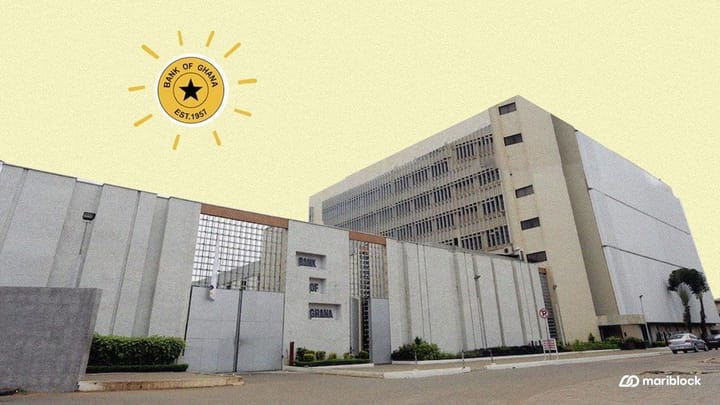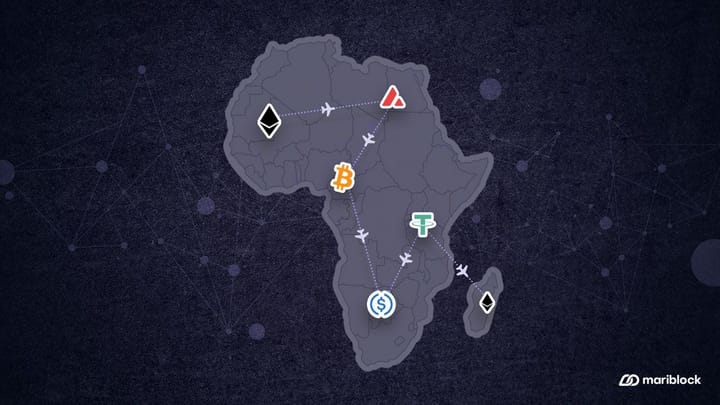🟠 Binance goes retail in South Africa
Plus: 🇳🇬 Central Bank of Nigeria to tackle inflation by mopping up excess liquidity in banking system. 🇳🇬 Nigeria secures $1 billion concessionary loan from African Development Bank.
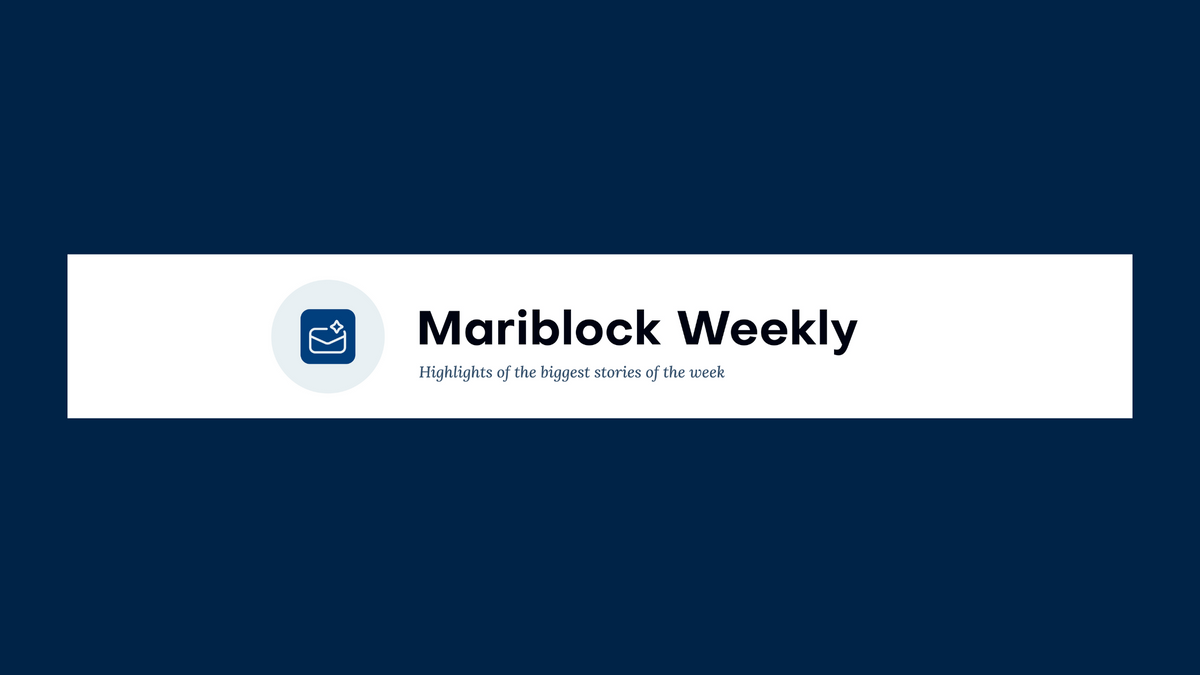
It’s Oge again. I am here to share some blockchain and digital assets stories Mariblock readers read last week.
The big news: The cryptocurrency market is experiencing its strongest performance since May 2022, with the price of bitcoin surpassing $40,000 for the first time since April of the same year.
The rise is driven by anticipation around the potential approval of Bitcoin Exchange-Traded Funds (ETFs) by the American SEC. Additionally, experts see the upcoming Bitcoin halving in April 2024 as a positive indicator.
These developments bring optimism and dispel the gloom lingering from crypto-business failures in 2022.
Let’s dive into some of Mariblock’s stories.
Stay up-to-date with the latest blockchain and digital asset developments in Africa
Binance partners with CryptoConvert to introduce new crypto payment option for South Africans
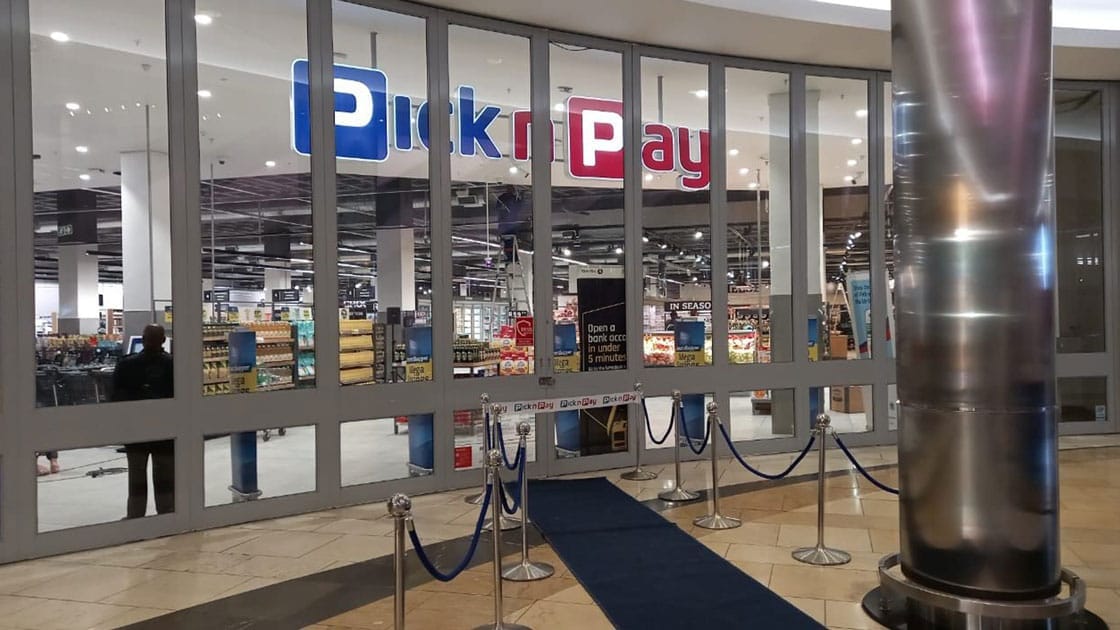
Topline: Global cryptocurrency exchange Binance has collaborated with CryptoConvert to introduce an additional digital asset payment option for South Africans. (Details)
- The new feature allows Binance users to use their crypto wallets to make purchases at all Pick n Pay stores nationwide.
Details: To utilize this feature, Binance users need to scan the QR code for payments presented by Pick n Pay’s cashier using their CryptoQR app. This action opens their Binance wallets, facilitating payment directly to the store.
- While declining to share usage data, the exchange informed Mariblock of “substantial” adoption of the new feature.
Key context: This development highlights the pros of the increasingly friendly disposition of South African regulators toward crypto, most especially the regulatory clarity from the South African Financial Sector Conduct Authority (FSCA).
CrytoConvert’s background: In February, CryptoConvert announced that it launched a system allowing South Africans to pay for their groceries at all Pick n Pay stores using bitcoin.
- Three months ago, the payments company announced that it was partnering with the crypto exchanges VALR and Luno to enable users of these exchanges to pay directly through their wallets without needing to fund a separate Lightning wallet first.
- CryptoConvert’s founder, Carel van Wyk, told Mariblock that it became necessary to integrate exchanges because its users complained that they would rather skip the extra step to fund Lightning wallets.
“Previously, we only supported Bitcoin Lightning wallet payments. Our number one customer complaint was that they wanted to avoid going through the extra step of funding their Bitcoin Lightning wallets from their Luno and VALR accounts. So, we decided to help them by eliminating [that extra step],” van Wyk said.
Central Bank of Nigeria to tackle inflation by mopping up excess liquidity in banking system
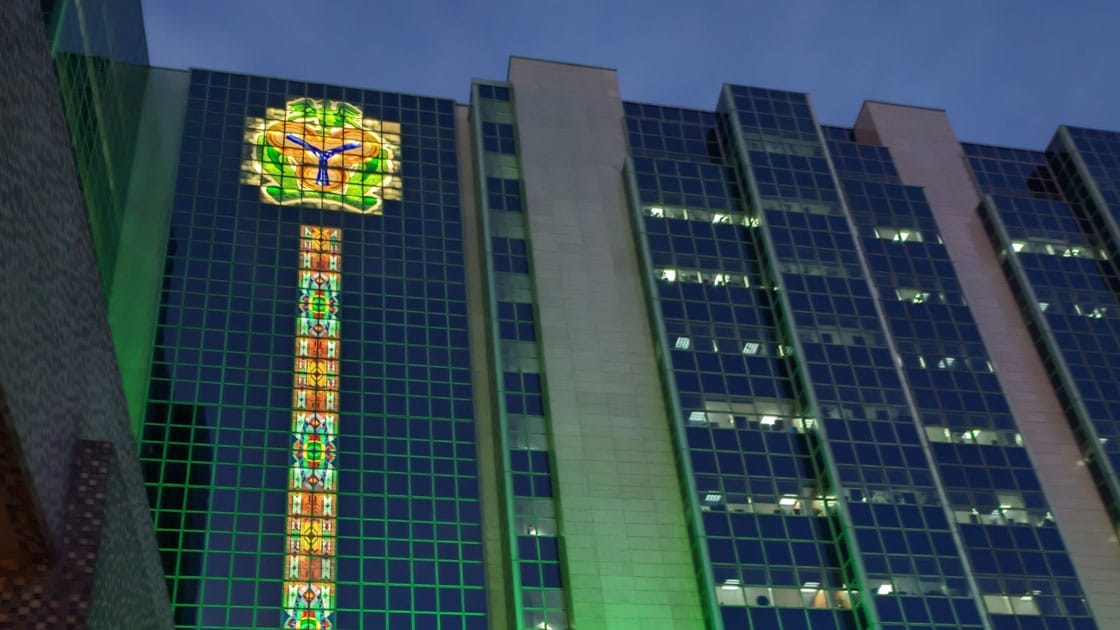
Topline: Last week, the Central Bank Of Nigeria (CBN) revealed that it has tightened its monetary policy and will continue to do so over the next two quarters. (Details)
- According to the CBN governor, Olayemi Cardoso, the objective is to reduce excess liquidity in the banking sector, consequently curbing inflation.
The details: During his speech at the Chartered Institute of Bankers of Nigeria (CIBN) dinner, Cardoso acknowledged the need to rebuild the bank’s reputation, which the previous administration’s actions had tarnished.
- He claimed the bank’s reputation suffered from the activities under his predecessor, Godwin Emefiele, who injected 10 trillion naira into the economy, causing cash oversaturation, rising inflation, and hampering monetary policy transmission.
Key quotes: Cardoso said:
“I am aware that events over the past few years have also put the CBN in a bad light. These issues can be attributed to various factors, such as corporate governance failures, diminished institutional autonomy of the [CBN], a deviation from the core mandate of the bank, unorthodox use of monetary tools, an inefficient and opaque foreign exchange market that hindered clear access and a foray into fiscal activities under the cover of development finance activities.”
Zoom in: To address the excess liquidity, the CBN deployed some measures, including a recent open market operation (OMO) auction that was oversubscribed by 350 billion naira. He added that another OMO is set to take place imminently.
- The bank also offered 108 billion naira in treasury bills to the public.
Why it matters: Cardoso said these policies helped the CBN reduce liquidity in Nigeria’s banking system to less than 100 billion naira in November, with inflation levels growing marginally slower in the same period.
- In October, banks deposited 2.95 trillion naira with the CBN, a 273% increase from the previous month.
- The CBN plans to keep monetary policy tight over the next two quarters as it looks to slow down inflation levels, which rose to 27.33% in October.
Nigeria secures $1 billion concessionary loan from African Development Bank

While Nigeria is looking to mop up excess liquidity, there seems to be no plan to cut down its debt.
Topline: Nigeria’s Federal Executive Council (FEC) has approved a $1 billion concessionary loan from the African Development Bank (AfDB) to ensure fiscal stability and enhance foreign exchange reserves. (Details)
- Finance Minister Olawale Edun disclosed this on Nov. 27 during a council meeting presided by President Bola Tinubu at the Presidential Villa, Abuja.
The details: The Minister said the AfDB loan attracts an interest of 4.2% for 25 years with an eight-year moratorium.
- Edun said the loan would help reduce the nation’s debt servicing burden, potentially saving Nigeria around 50 billion naira in interest payments.
Why this matters: Nigeria has been spending the bulk of its revenue on debt service. Its current debt service-to-revenue ratio stands at 73.5%.
- By the end of his term, former President Muhammadu Buhari had amassed a debt of 77 trillion naira ($167 million) to domestic and international lenders.
- The newly elected Tinubu-led government disclosed that 96% of the country’s revenue is currently dedicated to debt servicing.
Mariblock Insights: Fixing chargebacks in Nigeria with blockchain-powered payments
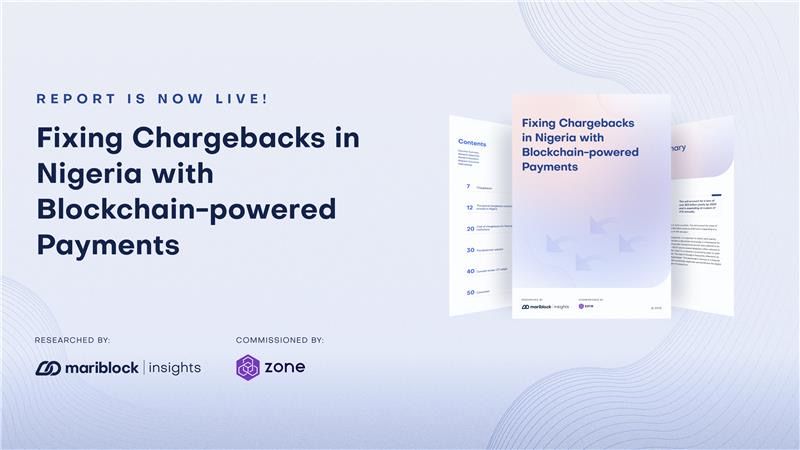
Topline: Technology has modernized financial transactions and revolutionized payment methods, simplifying and enhancing convenience for consumers. However, this progress has also facilitated fraudulent activities, including damaging chargeback frauds, affecting both online and local vendors.
- In our inaugural report, we explore this pressing concern in depth. We dissect the intricacies of chargebacks in Nigeria and shed light on blockchain technology’s transformative potential.
- This report was commissioned by the Nigerian blockchain company Zone Network. However, Mariblock Insights independently researched and produced the work.
- Click here to download the report.
Catch up

🇸🇴 Somalia joins the East African trade bloc (Mariblock)
🌏 How crypto provides people with a way out during conflicts (Mariblock)
🌍 Infographic: How cryptocurrency has value and why you should care (Mariblock)
What we’re reading:
🌍 Bitcoin rises above $42,000 for first time since April 2022 (Reuters)
🇿🇦 South African regulator may license 36 crypto companies in December (Cointelegraph)
That’s it for this week.
See you next week.
Cheers,
Ogechi.

